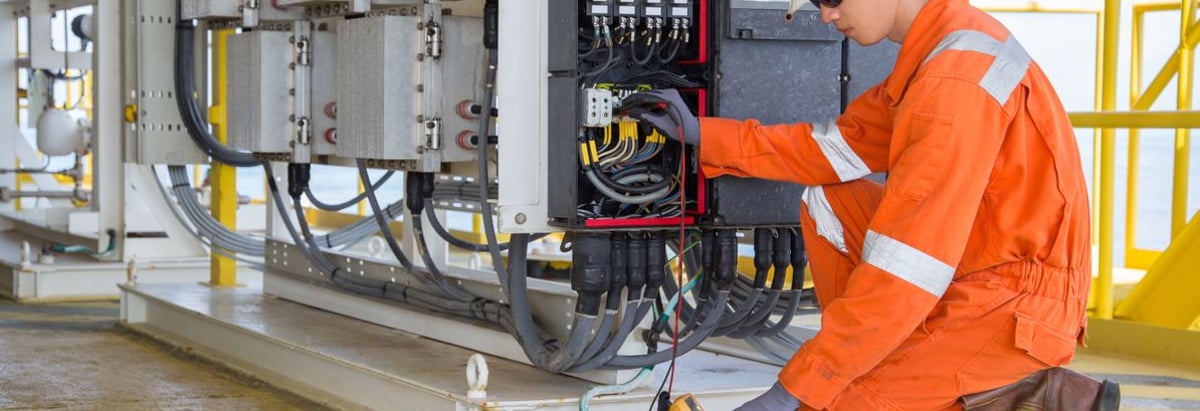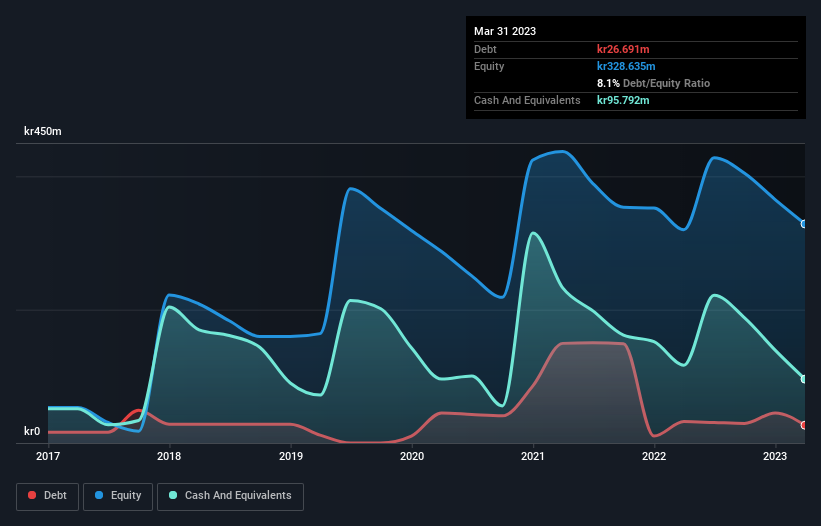
Warren Buffett famously said, 'Volatility is far from synonymous with risk.' So it might be obvious that you need to consider debt, when you think about how risky any given stock is, because too much debt can sink a company. Importantly, Climeon AB (publ) (STO:CLIME B) does carry debt. But is this debt a concern to shareholders?
What Risk Does Debt Bring?
Debt and other liabilities become risky for a business when it cannot easily fulfill those obligations, either with free cash flow or by raising capital at an attractive price. In the worst case scenario, a company can go bankrupt if it cannot pay its creditors. However, a more common (but still painful) scenario is that it has to raise new equity capital at a low price, thus permanently diluting shareholders. Of course, the upside of debt is that it often represents cheap capital, especially when it replaces dilution in a company with the ability to reinvest at high rates of return. When we examine debt levels, we first consider both cash and debt levels, together.
See our latest analysis for Climeon
What Is Climeon's Debt?
As you can see below, Climeon had kr26.7m of debt at March 2023, down from kr32.1m a year prior. However, it does have kr95.8m in cash offsetting this, leading to net cash of kr69.1m.

How Healthy Is Climeon's Balance Sheet?
We can see from the most recent balance sheet that Climeon had liabilities of kr72.8m falling due within a year, and liabilities of kr34.6m due beyond that. Offsetting these obligations, it had cash of kr95.8m as well as receivables valued at kr49.6m due within 12 months. So it can boast kr38.1m more liquid assets than total liabilities.
This surplus suggests that Climeon has a conservative balance sheet, and could probably eliminate its debt without much difficulty. Simply put, the fact that Climeon has more cash than debt is arguably a good indication that it can manage its debt safely. The balance sheet is clearly the area to focus on when you are analysing debt. But it is Climeon's earnings that will influence how the balance sheet holds up in the future. So when considering debt, it's definitely worth looking at the earnings trend. Click here for an interactive snapshot.
Over 12 months, Climeon made a loss at the EBIT level, and saw its revenue drop to kr22m, which is a fall of 43%. To be frank that doesn't bode well.
So How Risky Is Climeon?
By their very nature companies that are losing money are more risky than those with a long history of profitability. And in the last year Climeon had an earnings before interest and tax (EBIT) loss, truth be told. Indeed, in that time it burnt through kr115m of cash and made a loss of kr130m. With only kr69.1m on the balance sheet, it would appear that its going to need to raise capital again soon. Overall, its balance sheet doesn't seem overly risky, at the moment, but we're always cautious until we see the positive free cash flow. When analysing debt levels, the balance sheet is the obvious place to start. But ultimately, every company can contain risks that exist outside of the balance sheet. Case in point: We've spotted 6 warning signs for Climeon you should be aware of, and 4 of them are significant.
When all is said and done, sometimes its easier to focus on companies that don't even need debt. Readers can access a list of growth stocks with zero net debt 100% free, right now.
New: AI Stock Screener & Alerts
Our new AI Stock Screener scans the market every day to uncover opportunities.
• Dividend Powerhouses (3%+ Yield)
• Undervalued Small Caps with Insider Buying
• High growth Tech and AI Companies
Or build your own from over 50 metrics.
Have feedback on this article? Concerned about the content? Get in touch with us directly. Alternatively, email editorial-team (at) simplywallst.com.
This article by Simply Wall St is general in nature. We provide commentary based on historical data and analyst forecasts only using an unbiased methodology and our articles are not intended to be financial advice. It does not constitute a recommendation to buy or sell any stock, and does not take account of your objectives, or your financial situation. We aim to bring you long-term focused analysis driven by fundamental data. Note that our analysis may not factor in the latest price-sensitive company announcements or qualitative material. Simply Wall St has no position in any stocks mentioned.
About OM:CLIME B
Moderate with adequate balance sheet.
Similar Companies
Market Insights
Community Narratives



